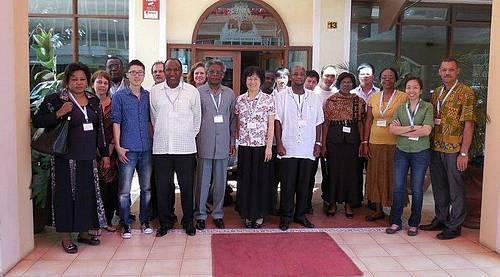In Africa, trade, aid and investments from the European Union (EU), United States (US) and China have not fully addressed the roots of poverty, inequality and ecological degradation. Churches, therefore, need to engage in a “development dialogue” to support alternative economic agendas, which can help eradicate poverty, while safeguarding Africa’s natural riches.
These points surfaced at a recent World Council of Churches (WCC) consultation in Arusha, Tanzania, from 27 February to 1 March.
Organized by the WCC’s Poverty, Wealth and Ecology programme, in cooperation with the All Africa Conference of Churches (AACC), the event was hosted by the Evangelical Lutheran Church in Tanzania.
At the consultation, participants highlighted the need to go beyond a critique of mainstream economic agendas. Together with people’s movements and civil society, churches must begin to shape and promote a “transformative development agenda”. This agenda, they said, is based on just economic relationships between countries based on the concept of “life in fullness for all” and ecological harmony as its goal.
Around twenty economists, sociologists, ecologists and development experts from Africa, EU, US and China took part in this dialogue.
“Aid from the EU and others which accounts for the total budget of national government, has benefited Tanzania’s infrastructure development and social service delivery,” said Grace Masalakulangwa from the Christian Council of Tanzania.
The EU has helped Tanzania to achieve a 96 percent enrollment rate in primary schools in 2010. Yet the aid could not solve the problem of poverty, as a majority of Tanzanians are still living below the poverty line, she noted.
The consultation analyzed the role of the African Growth and Opportunity Act (AGOA), a US policy instrument for investing in Africa. It was noted that while exports from AGOA beneficiaries amounted to 53.8 billion US dollars in the year 2011, it failed to generate substantial employment for Africans, except in the garment industry.
“The AGOA is aimed primarily at securing oil supplies for the US, which has huge investments in the petroleum industry in Nigeria and Angola,” said the Rev. Malcolm Damon from the Economic Justice Network of the Fellowship of Christian Councils in Southern Africa.
The revenues from petroleum exports help to finance public health and education. Yet the oil wells will inevitably run dry and the ecological costs will have to be accounted for, said Damon.
The EU and China have invested heavily in Zambia’s mining sector, especially the copper mining industry. However, the Rev. Suzanne Matale from the Christian Council of Zambia noted that such investments have failed to improve the lives of ordinary Zambians and had adverse affects on the health of people in mining communities.
She noted that government revenue collections from the export of minerals remain minimal. Therefore, “stronger environmental regulations on resource extractive activities as well as a tighter tax and revenue collection regime need to be imposed,” added Matale.
Participants of the consultation met with the representatives of Chinese contractors for a World Bank-financed road project in Arusha. Along with other recommendations, they called for effective mechanisms to ensure transfer of technologies and skills between Chinese and Africans.
The consultation was a follow-up to the EU-China-Africa Development Dialogue (ECADD) process, which emerged at the AACC Assembly in Maputo, 2008, focusing on the “political and economic liberation of Africa”.
Website of the All Africa Conference of Churches






